Friday Mock Newbery Exercise: Theme
In today’s Friday Mock Newbery Exercise, we take a look at one of my favorite Newbery criteria pieces: interpretation of the theme or concept.
It doesn’t matter what format the title is in (picture book, chapter book, nonfiction… theme and concept is something that NEEDS to be strongly developed if you want a title to be remembered. And I feel like themes are what actually stick with a reader for years to come (and characters too of course).
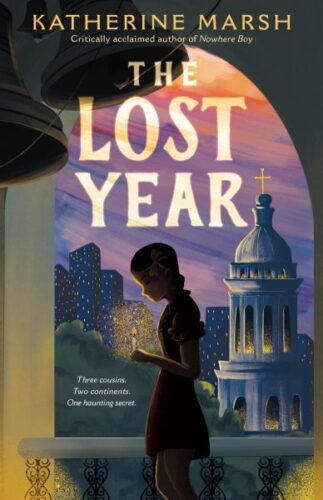
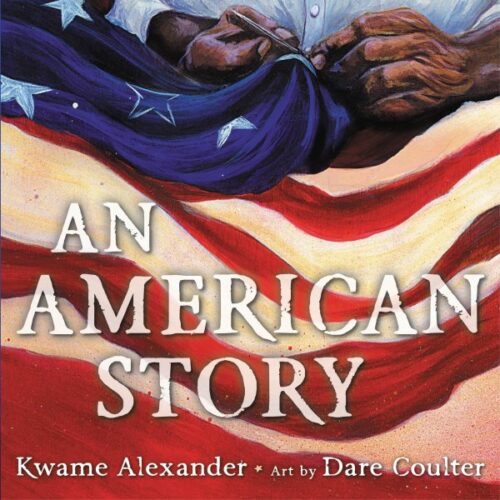
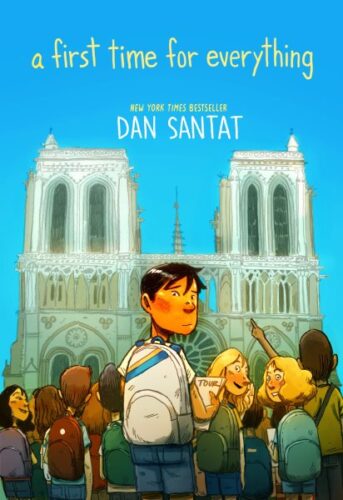
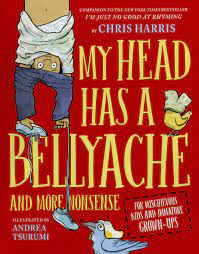
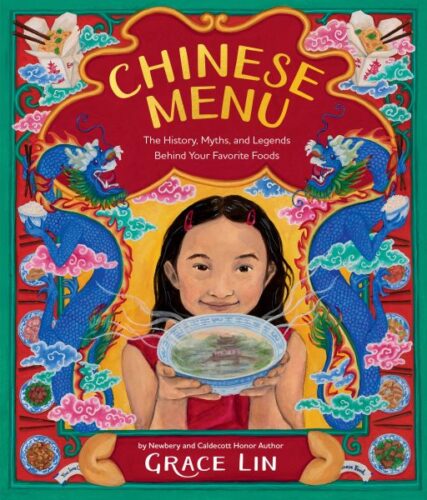
For this exercise take a look at a book that you think has very strong interpretation of a theme or concept and let us know what makes it powerful. Because I am so enthusiastic about how interpretation of theme or concept, I will take a look at books in multiple categories.
ADVERTISEMENT
ADVERTISEMENT
Middle grade fiction: THE LOST YEAR. Identity is what sticks out for me in every page of this book. The entire story focuses on identifying, claiming, coming to terms with and admitting identity- from the beginning when their value and importance changes, to turning down the cousin, to the very last pages. The way this theme changes so much in the main characters eyes and obviously the surprise ending– I may give this the best interpretation of theme of the year. Maybe I should just end my blog post now.
Picture Book: AN AMERICAN STORY. Reading the synopsis really says it for this title: ” From the fireside tales in an African village, through the unspeakable passage across the Atlantic, to the backbreaking work in the fields of the South, this is a story of a people’s struggle and strength, horror and hope. This is the story of American slavery, a story that needs to be told and understood by all of us. A testament to the resilience of the African American community, this book honors what has been and envisions what is to be.” This story is told on every page, through every word and illustration.
Graphic Novel: A FIRST TIME FOR EVERYTHING I’m reevaluating this book after it won the National Book Award. This title really embraces the awkward middle school years and new experiences, and the way everything is portrayed, the illustrations and dialogue makes this title stand out among the other graphic novels.
Nonfiction: CHINESE MENU. OK nonfiction could be a stretch for this one, but I have to put it SOMEWHERE. This you could call strong interpretation of theme AND concept… so boom! The way every chapter has the unique and excellently written introductions… how the stories are so separate and all over the place, but still flow together so well. This one deserves a look, but is it a hard Newbery sell?
Poetry: This is where MY HEAD HAS A BELLYACHE really sticks out to me. What hits here is how some of the poems tie together, the page footers– interpretation of concept can hopefully give this book a place on the table.
Which 2024 Newbery titles do you think have strong interpretation of theme or concept? Let us know in the comments.
Filed under: Uncategorized
About Emily Mroczek-Bayci
Emily Mroczek (Bayci) is a freelance children’s librarian in the Chicago suburbs. She served on the 2019 Newbery committee. You can reach her at emilyrmroczek@gmail.com.
ADVERTISEMENT
ADVERTISEMENT
SLJ Blog Network
Name That LEGO Book Cover! (#53)
Review of the Day: Being Home by Traci Sorell, ill. Michaela Goade
Exclusive: Vol. 2 of The Weirn Books Is Coming in October | News
Fighting Public School Book Bans with the Civil Rights Act
North Texas Teen Book Festival 2024 Recap
ADVERTISEMENT








I like all those examples, Emily. I hadn’t really thought about the importance of identity in THE LOST YEAR. Good example of how identifying those key themes can help you look at a book differently. I feel like I can instantly identify how strong plot and characters are, because those are the most immediate reader experiences. Themes you have to think about a little more, and sometimes that leads to greater appreciation and understanding.
GONE WOLF is one example of a book where the themes wind up being pretty clear…but (intentionally) not fully clear from the start. By starting with the horrific future vision of Imogen’s, then jumping back to the immediate problems she’s dealing with in 2022, the author presents the injustices of systemic racism in a creative and powerful way. That 2111 world is so vivid in the reader’s mind that you can’t help but draw a direct line from the present day to that grim future.
THE MONA LISA VANISHES is my pick here. The way the author tied together Da Vinci’s life and the theft of the Mona Lisa through the theme of reasoning really impressed me. The French detectives are hampered by preconceived notions (like only a certain type of person would be able to steal the Mona Lisa). Da Vinci, on the other hand, had an open mind and was driven by curiosity. Therefore the author concludes Leonardo probably would have been able to solve the case of the stolen Mona Lisa better than 20th century detectives. Brilliant!
Lots of kids enjoy detective stories because they like to be able to use their powers of reasoning to solve the mystery (see also: adults and true crime podcasts). Day is taking a step back from your typical mystery plot and asking young readers to think about what kind of reasoning works best to solve a crime.
Interpretation of theme is a difficult one to evaluate for me. When themes are very clear and out front, I think that can be a negative, at least for adult readers who may slap the dreaded “didactic” label on it. I think the more obvious themes of The Last Cuentista were a problem for me compared to ALEBRIJES, which I thought was the superior science fiction book. But I’d also be harder-pressed to name its themes and how the author interprets them. Similarly, I somewhat preferred ONCE THERE WAS to THE MANY ASSASSINATIONS OF SAMIR, but could also argue that the the former’s themes are more opaque.
Given these difficulties, I personally go with “interpretation of concept.” When I say ALEBRIJES is the better science fiction novel, with world-building that encompasses a history, a society, cultures, technology, geography, etc., maybe that is distinguished “interpretation of concept” if not theme. Elsewhere, Steven praised ONCE THERE WAS’s approach to the magic kid book, which I agree felt fresh, and perhaps that is also distinguished “interpretation of concept.” In contrast, I enjoyed THE FIREFLY SUMMER, but perhaps it both didn’t focus enough on the dead parent’s treasure hunt conceit nor put enough of a twist on it compared to previous examples. I am probably also in the minority regarding the LOST YEAR. Clear themes, yes, but I feel its was a fairly common concept and Marsh’s interpretation of it didn’t rise above. (My experience of this book may have been colored by my guessing the plot twist miles in advance, and I didn’t even know to expect one from other’s commentary. Same with MANY ASSASSINATIONS – there were things I admired, but I knew where it was going.)
Want to add that one example where I might’ve welcomed a clearer presentation of theme is THE SKULL. I think others might’ve expressed similar sentiments? Given the choice between stories-with-nebulous-themes/concepts vs. themes/concepts-disguised-as-story, I definitely prefer the former, but this one might’ve gone too far.